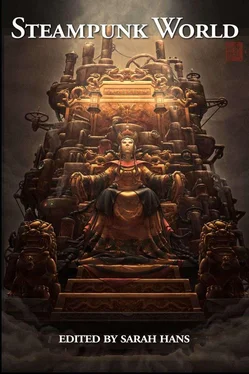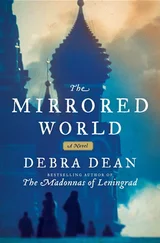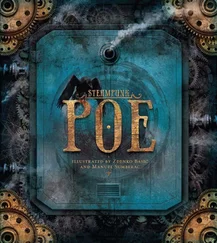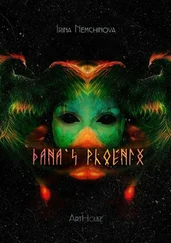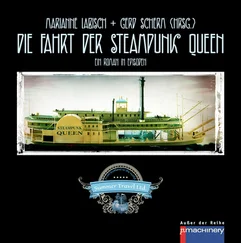Ging is sixty-four, Aunrampha sixty, and there are Farangset gunboats in the harbors of Bangkok. Each cannon in the palace’s direction, poised to fire.
There are six thousand automata, and twelve thousand small bombers. Ging whispers them a command at night.
Their march is utterly silent.

Tangi a te ruru / The cry of the morepork
Pip Ballantine
Manuwatu Gorge, New Zealand
September 1873
The man lying face up in the rain at the bottom of the gorge looked surprised. Agent Aroha Murphy, looking down at his broken body, shared that very emotion, though hers was tinged with the bitterness of disappointment. The cloak of thick bush around them and the rush of the Manawatu River made it seem like a far too pretty place for the man to have breathed his last—even in the pouring rain. Allen Henderson was a liar, a thief, and should have been dead years ago. However, it should have been at Aroha’s hand.
As water filled his damnable eyes, she ground her teeth to hold back a scream of outrage at the unfairness of fate. She had been hunting Henderson for years after the attack on the farmhouse that had ended with her sister Emma dead, and her mother quite lost to her senses. Perhaps I should feel more relieved , she thought to herself, but damn it, I wanted to end him .
After a long few minutes, James Childs, the constable at her side, cleared his throat. He was trying to gallantly hold the umbrella over her head, but he was having some difficulty keeping his footing in the growing mud of the riverbank.
“Agent Murphy?” he asked softly, and that was enough to snap Aroha out of her contemplation.
She was here, she recalled, not as a wronged party, but as an agent of the Ministry of Peculiar Occurrences, and she had a job to do.
Aroha poked Henderson with her foot, rolling him over onto his face, and then bent down to examine his back.
“I can’t see any wounds apart from that from the fall,” she commented, pursing her lips. “I couldn’t think of a man less likely to commit suicide than Henderson.” She pointed up the hill to the path where carts and carriages made their perilous way along the side of the mountain between Ashhurst and Woodville. Her Maori kin had named the gorge Te Apiti, the Narrow Passage, and it was well deserved, for at any time a landslide could take out the fragile road. It was, however, not the cause of Henderson’s plunge down to the river because the road was intact.
She looked up, her brown eyes focusing on Constable Childs. “You say this isn’t the only one last night?”
The young man ran his fingers through his ginger hair and glanced at his damp regulation issue notebook. “Indeed, Marie Lafayette, Tommy Ring, Hemi Hudson, and two others that we don’t know of down by where the river exits the gorge.”
“And the moon last night was full?”
Childs nodded. “A huge one.”
“Not all of them could have accidentally walked off the road on the same night,” Aroha muttered to herself. She already knew she was on the right track, so she just had to find the culprit. That task sat poorly with her though, given the identity of one of the ‘victims’.
“It’s very strange,” Childs replied, “but it was lucky you were in the area, Agent Murphy.”
“Yes,” she said examining the towering hills and bush around them. “Lucky indeed.” She didn’t dare tell him the Ministry had sent her chasing after a string of similar suicides up and down the North Island. The Ministry of Peculiar Occurrences did not have a large office in New Zealand, so resources were spread very thin, and she was pretty much it for the lower half of the North Island.
The wars with the Maori were still fresh in people’s minds, and the Imperial forces had only just left the shores of Aotearoa. Still, because of her heritage, Aroha could move more easily around the countryside than most agents.
However, it was probably her dark skin and strange dress that had this young local policeman nervous. He was about to get a lot more so in a moment. She was sick of explaining herself to the locals. Lately she had given up telling them all about her airship captain Ngati Toa father, and her Italian mother, so she let her outfit speak for itself. Aroha might wear pakeha male clothing for ease of use, but she also had draped over her shoulder her father’s kahu huruhuru . She had received the highly valued cloak, which contained the highly sought-after kereru feathers, as some kind of recompense from him for not taking her into the tribe. He already had a fine Ngati Toa wife, after all.
She wore the cloak not because it was his, but because it came from her ancestors, and that still meant a great deal to her.
Swinging down her backpack and placing it carefully on the ground, Aroha began to unpack the equipment she’d been hauling around since she’d left Rotorua three weeks ago.
She pulled out a small brass box, and attached to it a needle-thin rod, and to that a white sail-like shape about the size of her spread hand.
Constable Childs couldn’t help leaning down to see what she was doing. “That looks…”
“…delicate,” Aroha interrupted, worried the enthusiastic policeman might start poking at it in the way of men.
“What is it?”
She let out a sigh. “It’s an aether tracker. A brand new device just shipped in from the London office last month.”
Childs nodded as if he had a clue what she was talking about, and now she knew his eyes were fixed on the moko kauae that was carved proudly on her chin. The marks made her lips a dark blue, and decorated her chin with the curves and spirals she was entitled to. It was a declaration of her mana, her rank, and her past. She was proud of it, but she knew many others just didn’t understand why she would mark her face.
The policeman was earnest but clueless, so Aroha smiled at him as she explained something he might be able to grasp. “The tracker is an extension of what my ancestors were very good at, but instead of following tracks in the bush we can follow the emissions of anything beyond the normal.”
“You mean ghosts?” Childs whispered, going even paler.
That such things existed had always been accepted by her father’s people, but pakeha tended to become a little unhinged if they came near to the truth.
“No,” she said, as she began to turn the small crank on the side of the tracker, “ghosts do not exist Constable Childs…” she added under her breath, “…at least not here.”
The small receiver on the top flicked back and forth, and narrow tape of paper chugged out from the side. After examining it, Aroha let out an exasperated breath. “The signal is too weak. Show me where you think the body fell.”
Constable Childs gestured to two local men who were waiting some distance away from them, and they hustled up to carry Henderson away before he spoiled the beauty of the spot with his rotting corpse.
Aroha watched dispassionately as they did their work. It felt odd to know someone else had stolen her vengeance. Her father’s ancestors believed firmly in utu , the concept that all must be kept in balance with kindness or vengeance depending on the action. Her mother’s ancestors had also believed in an eye for an eye. Apparently both sets of ancestors would not be satisfied this day.
Still, it was a new world with new rules.
Aroha packed up the tracker, and then together she and Constable Childs climbed up the slippy, narrow track to the road. The wet bush dripped on her head, and the occasional fern slapped her in the face. New Zealand bush was thick and dense, unlike forests in the old world, and Aroha wondered if it concealed at this very moment an attacker.
Читать дальше
